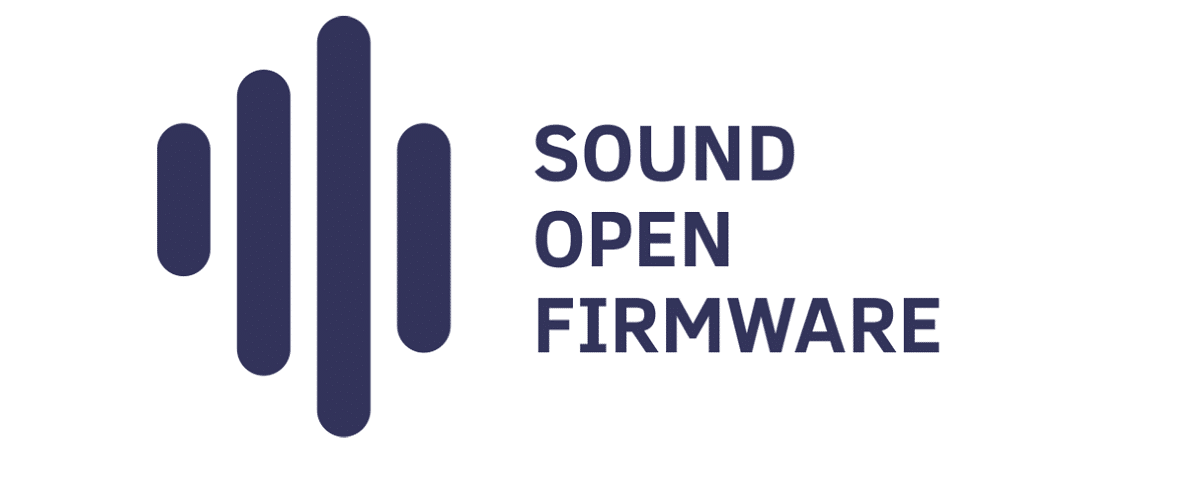
The release of the new version of the project Sound Open Firmware 2.2 (SOF), originally created by Intel to abandon the practice of supplying closed firmware for DSP chips associated with sound processing.
Subsequently, the project was transferred under the wing of the Linux Foundation and is now being developed with the participation of the community and with the participation of AMD, Google and NXP.
The project develops an SDK to simplify firmware development, a sound driver for the Linux kernel, and an out-of-the-box firmware set for various DSP chips for which, among other things, digitally signed binary assemblies are generated.
Due to its modular structure, Sound Open Firmware can be ported to various DSP architectures and hardware platforms. For example, among the supported platforms, support for various Intel (Broadwell, Icelake, Tigerlake, Alderlake, etc.), Mediatek (mt8195), NXP (i.MX8*), and AMD (Renoir) chips equipped with DSP-based Xtensa HiFi Architectures 2, 3 and 4 are declared.
During the development, you can use a special emulator or QEMU. Using open firmware for DSP allows you to troubleshoot and diagnose firmware issues faster, and also gives users the opportunity to independently tailor the firmware to their needs, perform targeted optimizations, and create lightweight firmware versions containing only the necessary functionality in the product.
The project provides a framework for developing, optimizing and testing solutions related to sound processing, as well as creating drivers and programs to interact with the DSP.
The package includes firmware implementations, firmware test tools, utilities for converting ELF files into firmware images suitable for installation on hardware, debugging tools, a DSP emulator, a host platform emulator (based on QEMU), tools for tracing firmware, scripts for MATLAB/ Octave for fine-tuning coefficients for audio components, applications for organizing interaction and data exchange with firmware, ready-to-use examples of audio processing topologies.
The project is also developing a generic driver that can be used with devices running firmware based on Sound Open Firmware.
The controller It is already part of the Linux kernel since version 5.2 and it comes under a dual license – BSD and GPLv2. The driver is responsible for loading firmware into DSP memory, loading audio topologies into the DSP, running the audio device (responsible for calling DSP functions from applications), and providing application access points to DSP devices. audio data.
The controller also provides an IPC mechanism for communication between the host system and the DSP, and a layer to access the hardware capabilities of the DSP through a generic API. A DSP with Sound Open Firmware sees applications as a normal ALSA device, which can be controlled via a standard software interface.
Main new features of Sound Open Firmware 2.2
In this new version it is noted that the component name was changed to work with codec libraries external of codec_adapter to module_adapter and aligned with the Signal Processing Modules API, which will allow you to use Windows driver code without changing it.
Deprecated the Frag API, which improved the performance of each component by approximately 1 MCPS (million ticks per second).
It is also highlighted that added Frame API, which precomputes block sizes for drivers based on and without SIMD instructions. The optimization allowed to increase the performance by approximately 0,25 MCPS.
In addition to this, it is also highlighted that extended the ability to use the Zephyr RTOS environment instead of XTOS as a basis for the firmware. Zephyr greatly simplifies and shortens the code for Sound Open Firmware applications. The new version adds native Zephyr API support for logging and delays. Full native support for Zephyr is expected in the next release.
Moreover, the ability to use the IPC4 protocol has been expanded for capturing and playing back sound on Windows OS devices (IPC4 support allows you to interface with Windows Sound Open Firmware-based DSPs without using a specific driver).
And added a new HiFi4 compatible downmix module to reduce or increase the number of audio channels in the stream.
Finally, if you are interested in knowing more about it, you can consult the details In the following link.